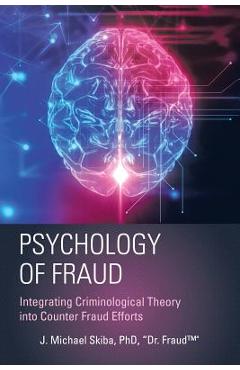Psychology of Fraud: Integrating Criminological Theory into Counter Fraud Efforts - Fraud(tm) Skiba

Detalii Psychology of Fraud: Integrating Criminological
libris.ro
153.79 Lei
170.88 Lei
Technology & Engineering
Fraudtm Skiba
Psychology of Fraud: Integrating Criminological - Disponibil la libris.ro
Pe YEO găsești Psychology of Fraud: Integrating Criminological de la Fraudtm Skiba, în categoria Technology & Engineering.
Indiferent de nevoile tale, Psychology of Fraud: Integrating Criminological Theory into Counter Fraud Efforts - Fraud(tm) Skiba din categoria Technology & Engineering îți poate aduce un echilibru perfect între calitate și preț, cu avantaje practice și moderne.
Preț: 153.79 Lei
Caracteristicile produsului Psychology of Fraud: Integrating Criminological
- Brand: Fraudtm Skiba
- Categoria: Technology & Engineering
- Magazin: libris.ro
- Ultima actualizare: 10-05-2024 01:05:14
Comandă Psychology of Fraud: Integrating Criminological Online, Simplu și Rapid
Prin intermediul platformei YEO, poți comanda Psychology of Fraud: Integrating Criminological de la libris.ro rapid și în siguranță. Bucură-te de o experiență de cumpărături online optimizată și descoperă cele mai bune oferte actualizate constant.
Descriere magazin:
Estimates reveal that insurance fraud costs $80 billion per year--and that\'s just in the United States of America. That translates into almost $1,000 annually per household. Weak preventative controls and paltry punishments make insurance fraud particularly attractive to criminals, who often use it as their preferred vehicle for funding organized crime and terrorist activities. J. Michael Skiba examines why insurance fraud is seen as a low-risk, high-reward offense and the toll it takes on society. He also highlights how criminological theory can be used in a counter fraud setting; how pressure, opportunity, and rationalization form the basis of insurance fraud; and how to identify where you\'re most vulnerable. By learning how the mind of a fraudster works, you\'ll be equipped to fix problem areas. More importantly, you\'ll have the insights you need to develop a comprehensive anti-fraud program. Reduce the opportunity to commit insurance fraud, mitigate losses, boost profitability, and save honest customers money by drilling down into the Psychology of Fraud.

Produse asemănătoare

Psychology of Fraud, Persuasion and Scam Techniques. Understanding What Makes Us Vulnerable, Paperback/Martina Dove
![]() elefant.ro
elefant.ro
Actualizat in 20/10/2025
216.99 Lei
Produse marca Fraudtm Skiba

Psychology of Fraud: Integrating Criminological Theory into Counter Fraud Efforts - Fraud(tm) Skiba
![]() libris.ro
libris.ro
Actualizat in 10/05/2024
153.79 Lei